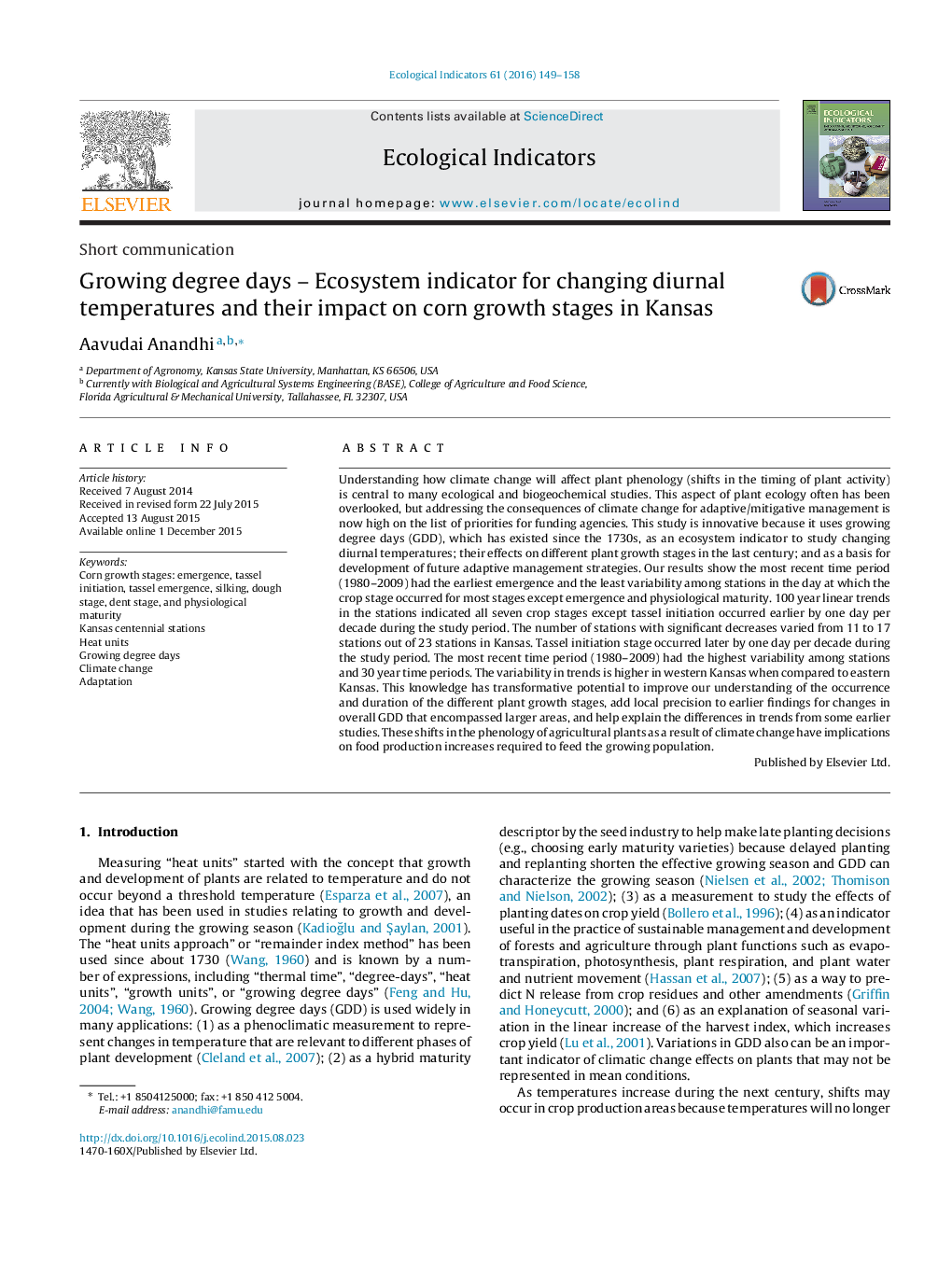| Article ID | Journal | Published Year | Pages | File Type |
|---|---|---|---|---|
| 6293572 | Ecological Indicators | 2016 | 10 Pages |
Abstract
Understanding how climate change will affect plant phenology (shifts in the timing of plant activity) is central to many ecological and biogeochemical studies. This aspect of plant ecology often has been overlooked, but addressing the consequences of climate change for adaptive/mitigative management is now high on the list of priorities for funding agencies. This study is innovative because it uses growing degree days (GDD), which has existed since the 1730s, as an ecosystem indicator to study changing diurnal temperatures; their effects on different plant growth stages in the last century; and as a basis for development of future adaptive management strategies. Our results show the most recent time period (1980-2009) had the earliest emergence and the least variability among stations in the day at which the crop stage occurred for most stages except emergence and physiological maturity. 100 year linear trends in the stations indicated all seven crop stages except tassel initiation occurred earlier by one day per decade during the study period. The number of stations with significant decreases varied from 11 to 17 stations out of 23 stations in Kansas. Tassel initiation stage occurred later by one day per decade during the study period. The most recent time period (1980-2009) had the highest variability among stations and 30 year time periods. The variability in trends is higher in western Kansas when compared to eastern Kansas. This knowledge has transformative potential to improve our understanding of the occurrence and duration of the different plant growth stages, add local precision to earlier findings for changes in overall GDD that encompassed larger areas, and help explain the differences in trends from some earlier studies. These shifts in the phenology of agricultural plants as a result of climate change have implications on food production increases required to feed the growing population.
Related Topics
Life Sciences
Agricultural and Biological Sciences
Ecology, Evolution, Behavior and Systematics
Authors
Aavudai Anandhi,
